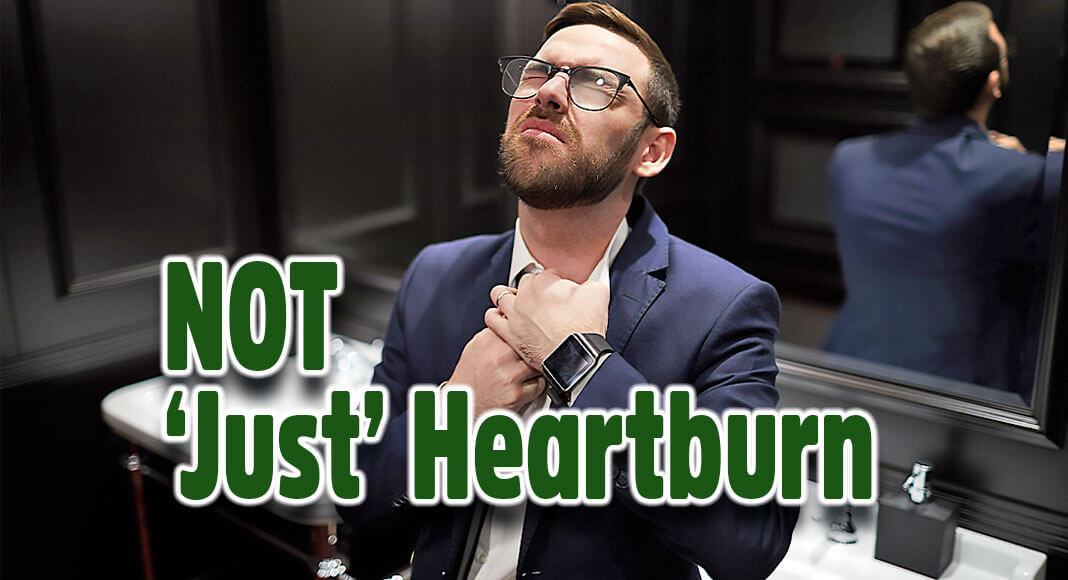
Mega Doctor News
By Mayo Clinic
Newswise — LONDON — Gastroesophageal reflux disease is one of the most common digestive disorders in the world. It happens when acid comes up from the stomach into the esophagus: The stomach can resist acid but the esophagus is less acid-resistant. James East, M.D., a gastroenterologist at Mayo Clinic Healthcare in London, says reflux disease may be common, but there can be severe complications if it is ongoing and left untreated.
Heartburn is a key symptom of reflux disease, but the disease is much more than that.
“Gastroesophageal reflux disease, is when you get acid and chemical damage to the lining of the esophagus,” Dr. East says. Some with reflux disease might feel a lump in the throat, have difficulty swallowing, have chest pain, a cough, or have worsening asthma-type symptoms.
“Complications of reflux disease include esophagitis, inflammation in the bottom of the esophagus,” Dr. East says. ” If this is persistent, you can develop scarring and a stricture,” or narrowing of the esophagus.
If it is persistent and heals, the lining of the esophagus can change to a more acid-resistant form, known as Barrett’s esophagus, a fairly common complication of reflux disease, Dr. East says.
Barrett’s esophagus is a condition in which the lining esophagus becomes damaged by acid reflux, which causes the lining to thicken and become red. Over time, the valve between the esophagus and the stomach may begin to fail, leading to acid and chemical damage of the esophagus. In some people, reflux disease may trigger a change in the cells that line the lower esophagus, causing Barrett’s esophagus.
While frequent heartburn may be a sign, many people with Barrett’s esophagus have no symptoms. Having Barrett’s esophagus does increase your risk of developing esophageal cancer. Although the cancer risk is small, it’s important for people with Barrett’s esophagus to have regular checkups to check for precancerous cells.
Those at highest risk for Barrett’s esophagus include:
- White men over the age of 50.
- People with family history of Barrett’s esophagus or esophageal cancer.
- People who smoke.
- People with excess abdominal fat.
- Patients with long-standing reflux lasting more than five years.
“If you have three of those risk factors, then you should have a screening endoscopy for Barrett’s esophagus,” Dr. East says. To screen for Barrett’s esophagus, a lighted tube with a camera at the end, called an endoscope, is passed down the throat to check for signs of changing esophagus tissue. A biopsy is often done to remove tissue and confirm the diagnosis.
Treatment for Barrett’s esophagus depends on the extent of abnormal cell growth in your esophagus and your overall health. Treatments in the early stages can include lifestyle measures and medications to help reduce acid reflux and therefore, the esophageal acid exposure.
Barrett’s esophagus affects 10% to 15% of people with reflux disease, Dr. East says. A much smaller group faces another risk.
“About 1 in 200 patients with Barrett’s esophagus per year will develop esophageal adenocarcinoma,” Dr. East says. “The stomach is well designed to handle highly acidic conditions. But the esophagus is not designed to cope with acid. And so when acid comes up, that acid reflux damages the cells, replacing them with more acid-resistant cells that develop into Barrett’s esophagus.”
There are innovative treatments for reflux disease and medications, like proton pump inhibitors. But first, avoid triggers, like coffee, alcohol and smoking.
“If you have severe or frequent reflux disease, you should seek medical advice,” Dr. East says.
For more information, visit Mayo Clinic Healthcare and the Mayo Clinic News Network.
About Mayo Clinic Healthcare
Mayo Clinic Healthcare, located in London, is a wholly owned subsidiary of Mayo Clinic, a not-for-profit academic medical center. Mayo Clinic in the U.S. is ranked No. 1 by U.S. News & World Report for a reason: quality of care. Mayo Clinic Healthcare is the U.K.’s front door to that unparalleled experience. Visit Mayo Clinic Healthcare for more information.
About Mayo Clinic
Mayo Clinic is a nonprofit organization committed to innovation in clinical practice, education and research, and providing compassion, expertise and answers to everyone who needs healing. Visit the Mayo Clinic News Network for additional Mayo Clinic news.








